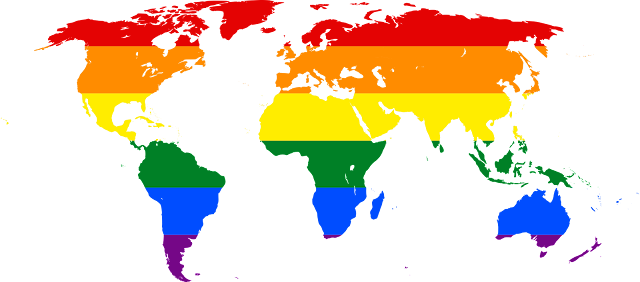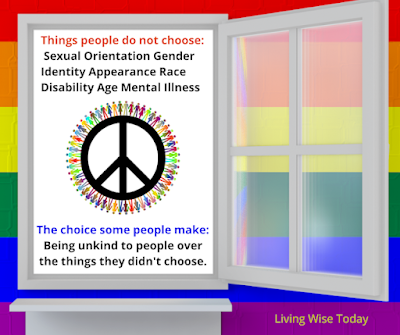Michael Corthell
Equality encompasses the fundamental principle of ensuring that each and every individual is granted fair and impartial opportunities to fully explore and utilize their inherent potential and capabilities. It revolves around the notion that no person should encounter diminished life prospects solely due to circumstances beyond their control, such as their birth, socio-economic background, personal beliefs, or physical or cognitive abilities.
At its core, equality represents the unwavering belief that every human being, regardless of their diverse attributes, should be treated with respect, dignity, and fairness. It stands as a formidable pillar of justice, emphasizing the eradication of unjust hierarchies and systemic disadvantages that have plagued societies throughout history.
Moreover, equality acknowledges the persistent reality that specific groups of people, distinguished by protected characteristics like race, disability, sex, and sexual orientation, have endured unjust discrimination in both past and present contexts. These marginalized groups have faced barriers to equal opportunities, exclusion from societal participation, and the denial of their inherent rights. The pursuit of equality seeks to address and rectify such injustices, fostering a society where every individual has an equitable chance to thrive and flourish.
Embracing equality necessitates the ongoing commitment to dismantle discriminatory systems and practices, promote inclusivity, and cultivate an environment where diversity is valued and celebrated. It recognizes that achieving true equality requires a collective effort, as it transcends mere individual interactions and extends to the spheres of institutions, policies, and cultural norms. By embracing the principles of equality, societies can strive towards a future where each person is afforded equitable treatment, access to opportunities, and the freedom to reach their full potential.
In contrast to the current monetary system, a resource-based economy offers the promise of fostering global unity and equality by harnessing our technological advancements and intelligently managing available resources. The underlying principle of such an economic model is to ensure that abundance is accessible to all individuals, transcending artificial barriers and artificial scarcity imposed by the pursuit of profit.
One of the primary tenets of a resource-based economy is the equitable distribution of resources. Instead of a system driven by monetary exchange and profit accumulation, resources are allocated based on the needs and well-being of the global population. By employing scientific methods and technology, an accurate assessment of available resources can be made, allowing for efficient management and utilization.
This approach promotes fairness and equity by eliminating the disparities that arise from income inequality and unequal access to resources. In a resource-based economy, everyone is entitled to a high standard of living, with their basic needs met, including access to food, clean water, shelter, healthcare, and education. The focus shifts from the accumulation of wealth and power to ensuring the welfare and fulfillment of all individuals.
Furthermore, a resource-based economy seeks to transcend national boundaries and promote global unity. It recognizes that the Earth's resources are a shared heritage, belonging to all humanity. By fostering international collaboration and cooperation, it aims to address global challenges collectively and develop sustainable solutions that benefit everyone.
Inherent to the concept of a resource-based economy is the integration of advanced technology and automation. By leveraging these innovations, production and distribution processes can be streamlined, minimizing waste and maximizing efficiency. This enables a higher level of resource utilization while reducing the burden on the environment. The emphasis on sustainable practices ensures the preservation of natural resources for future generations.
In this economic model, the well-being of individuals and the health of the planet take precedence over profit-driven motives. It envisions a society where the pursuit of wealth is replaced by a focus on human development, creativity, and the pursuit of knowledge. Education and personal growth are prioritized, empowering individuals to contribute meaningfully to their communities and society as a whole.
While the concept of a resource-based economy offers a vision of fairness and equity, it is important to acknowledge the complexities involved in its implementation. The transition to such a system would require significant changes in societal values, political structures, and cultural norms. Additionally, ensuring the just distribution of resources on a global scale and addressing potential challenges like governance, decision-making processes, and resource management would require careful planning and collaboration.
Ultimately, a resource-based economy presents an alternative perspective on economic organization, emphasizing unity, fairness, and sustainability. It challenges the current paradigm and invites us to explore new possibilities for creating a more equitable and prosperous future for all.
Advocates for animal rights oppose the assignment of moral value and fundamental protections on the basis of species membership alone—an idea known as speciesism since 1970, when Richard D. Ryder adopted the term—arguing that it is a prejudice as irrational as any other. They maintain that animals should no longer be viewed as property or used as food, clothing, research subjects, entertainment, or beasts of burden. Multiple cultural traditions and belief systems around the world such as Veganism, Jainism, Taoism, Hinduism, Buddhism, Shintoism and Animism also support the adoption of animal rights.(FMI: Go to: Google)
In parallel to the debate about moral rights, law schools in North America now often teach animal law, and several legal scholars, such as Steven M. Wise and Gary L. Francione, support the extension of basic legal rights and personhood to non-human animals.


Comments
Post a Comment